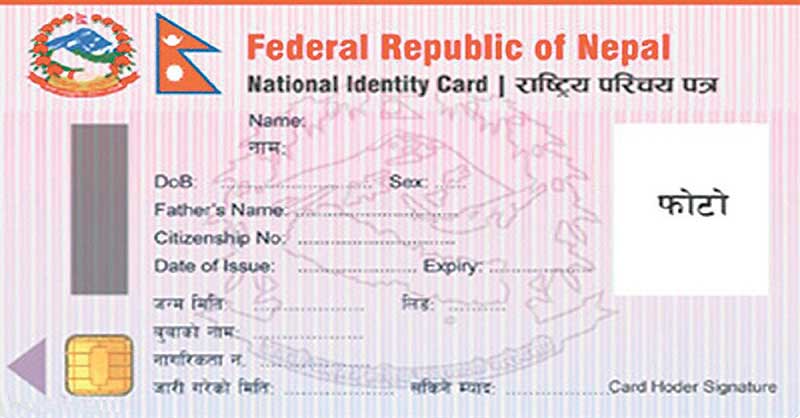
The House of Representatives has passed a bill to make arrangements for registration of national identity cards and registration. The bill was passed by the House of Representatives eight months after the introduction of the national identity card as a 'pilot project'.
Lawmakers were criticized for not distributing identity cards without the law. The bill passed will now be submitted to the National Assembly. Both will be implemented after passage from the House and certification from the President.
The law was to be prepared after the introduction of distribution of ID cards from last November. Although the bill passed in the recent past has been protected, some new provisions have been added in favor of distributed identity cards. The bill that passed has added some details to the previously distributed ID card. Eye details will be added to the new ID.
According to the bill passed, the identity card will have ten fingerprints on both hands. The personal identity and biological details including electronic photo, the electronic print will be preserved in the identity card. For the collection of biological details, in the case of a person who does not have all the fingers in both hands, this fine information will be made and fingerprint as far as possible. The identity card will include personal details of the person as well as details of the parent's name.
The bill passed also provides for revocation of identity card. An outdated certificate will be revoked. Likewise, the certificate submitted by other false statements will also be revoked. If the foreign citizen confirms the identity card, the identity card will also be canceled.
The national identity card will be canceled even if the person carrying the identity card does not have Nepal citizenship. The bill does not maintain such identity even if the person receiving the identity card dies.
The bill states that the confidentiality of personal and biological details contained in the identity card should be maintained. Such details must be verified in secret. Arrangements have been made to provide such details if demanded by the authorized body in connection with any criminal investigation. If a court makes a request, the details may be available even if the person makes the request himself.





